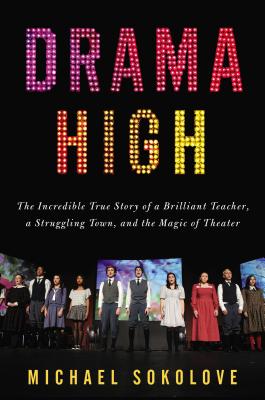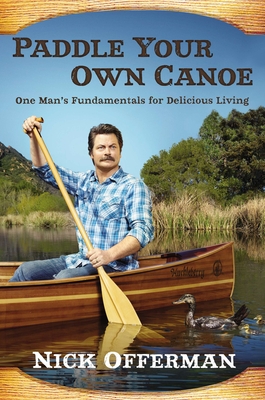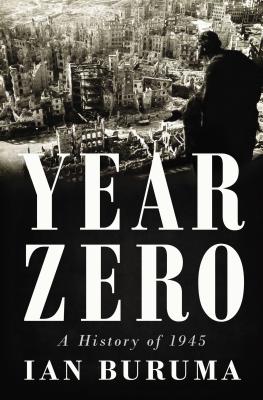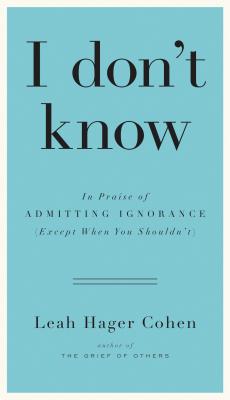Friday Night Lights meets Glee—the incredible and true story of an extraordinary drama teacher who has changed the lives of thousands of students and inspired a town.
Why would the multimillionaire producer of Cats, Phantom of the Opera, and Miss Saigon take his limo from Manhattan to the struggling former steel town of Levittown, Pennsylvania, to see a high school production of Les Misérables? To see the show performed by the astoundingly successful theater company at Harry S Truman High School, run by its legendary director, Lou Volpe. Broadway turns to Truman High when trying out controversial shows like Rent and Spring Awakening before they move on to high school theater programs across the nation. Volpe’s students from this blue-collar town go on to become Emmy-winning producers, entertainment executives, newscasters, and community-theater founders. Michael Sokolove, a Levittown native and former student of Volpe’s, chronicles the drama director’s last school years and follows a group of student actors as they work through riveting dramas both on and off the stage. This is a story of an economically depressed but proud town finding hope in a gifted teacher and the magic of theater.
Why would the multimillionaire producer of Cats, Phantom of the Opera, and Miss Saigon take his limo from Manhattan to the struggling former steel town of Levittown, Pennsylvania, to see a high school production of Les Misérables? To see the show performed by the astoundingly successful theater company at Harry S Truman High School, run by its legendary director, Lou Volpe. Broadway turns to Truman High when trying out controversial shows like Rent and Spring Awakening before they move on to high school theater programs across the nation. Volpe’s students from this blue-collar town go on to become Emmy-winning producers, entertainment executives, newscasters, and community-theater founders. Michael Sokolove, a Levittown native and former student of Volpe’s, chronicles the drama director’s last school years and follows a group of student actors as they work through riveting dramas both on and off the stage. This is a story of an economically depressed but proud town finding hope in a gifted teacher and the magic of theater.
Parks and Recreation actor Nick Offerman shares his humorous fulminations on life, manliness, meat, and much more in his first book.
Growing a perfect moustache, grilling red meat, wooing a woman—who better to deliver this tutelage than the always charming, always manly Nick Offerman, best known as Parks and Recreation’s Ron Swanson? Combining his trademark comic voice and very real expertise in woodworking—he runs his own woodshop—Paddle Your Own Canoe features tales from Offerman’s childhood in small-town Minooka, Illinois—“I grew up literally in the middle of a cornfield”—to his theater days in Chicago, beginnings as a carpenter/actor and the hilarious and magnificent seduction of his now-wife Megan Mullally. It also offers hard-bitten battle strategies in the arenas of manliness, love, style, religion, woodworking, and outdoor recreation, among many other savory entrees.
A mix of amusing anecdotes, opinionated lessons and rants, sprinkled with offbeat gaiety, Paddle Your Own Canoe will not only tickle readers pink but may also rouse them to put down their smart phones, study a few sycamore leaves, and maybe even hand craft (and paddle) their own canoes.
Growing a perfect moustache, grilling red meat, wooing a woman—who better to deliver this tutelage than the always charming, always manly Nick Offerman, best known as Parks and Recreation’s Ron Swanson? Combining his trademark comic voice and very real expertise in woodworking—he runs his own woodshop—Paddle Your Own Canoe features tales from Offerman’s childhood in small-town Minooka, Illinois—“I grew up literally in the middle of a cornfield”—to his theater days in Chicago, beginnings as a carpenter/actor and the hilarious and magnificent seduction of his now-wife Megan Mullally. It also offers hard-bitten battle strategies in the arenas of manliness, love, style, religion, woodworking, and outdoor recreation, among many other savory entrees.
A mix of amusing anecdotes, opinionated lessons and rants, sprinkled with offbeat gaiety, Paddle Your Own Canoe will not only tickle readers pink but may also rouse them to put down their smart phones, study a few sycamore leaves, and maybe even hand craft (and paddle) their own canoes.
A marvelous global history of the pivotal year 1945 as a new world emerged from the ruins of World War II
Year Zero is a landmark reckoning with the great drama that ensued after war came to an end in 1945. One world had ended and a new, uncertain one was beginning. Regime change had come on a global scale: across Asia (including China, Korea, Indochina, and the Philippines, and of course Japan) and all of continental Europe. Out of the often vicious power struggles that ensued emerged the modern world as we know it.
In human terms, the scale of transformation is almost impossible to imagine. Great cities around the world lay in ruins, their populations decimated, displaced, starving. Harsh revenge was meted out on a wide scale, and the ground was laid for much horror to come. At the same time, in the wake of unspeakable loss, the euphoria of the liberated was extraordinary, and the revelry unprecedented. The postwar years gave rise to the European welfare state, the United Nations, decolonization, Japanese pacifism, and the European Union. Social, cultural, and political “reeducation” was imposed on vanquished by victors on a scale that also had no historical precedent. Much that was done was ill advised, but in hindsight, as Ian Buruma shows us, these efforts were in fact relatively enlightened, humane, and effective.
A poignant grace note throughout this history is Buruma’s own father’s story. Seized by the Nazis during the occupation of Holland, he spent much of the war in Berlin as a laborer, and by war’s end was literally hiding in the rubble of a flattened city, having barely managed to survive starvation rations, Allied bombing, and Soviet shock troops when the end came. His journey home and attempted reentry into “normalcy” stand in many ways for his generation’s experience.
A work of enormous range and stirring human drama, conjuring both the Asian and European theaters with equal fluency, Year Zero is a book that Ian Buruma is perhaps uniquely positioned to write. It is surely his masterpiece.
Year Zero is a landmark reckoning with the great drama that ensued after war came to an end in 1945. One world had ended and a new, uncertain one was beginning. Regime change had come on a global scale: across Asia (including China, Korea, Indochina, and the Philippines, and of course Japan) and all of continental Europe. Out of the often vicious power struggles that ensued emerged the modern world as we know it.
In human terms, the scale of transformation is almost impossible to imagine. Great cities around the world lay in ruins, their populations decimated, displaced, starving. Harsh revenge was meted out on a wide scale, and the ground was laid for much horror to come. At the same time, in the wake of unspeakable loss, the euphoria of the liberated was extraordinary, and the revelry unprecedented. The postwar years gave rise to the European welfare state, the United Nations, decolonization, Japanese pacifism, and the European Union. Social, cultural, and political “reeducation” was imposed on vanquished by victors on a scale that also had no historical precedent. Much that was done was ill advised, but in hindsight, as Ian Buruma shows us, these efforts were in fact relatively enlightened, humane, and effective.
A poignant grace note throughout this history is Buruma’s own father’s story. Seized by the Nazis during the occupation of Holland, he spent much of the war in Berlin as a laborer, and by war’s end was literally hiding in the rubble of a flattened city, having barely managed to survive starvation rations, Allied bombing, and Soviet shock troops when the end came. His journey home and attempted reentry into “normalcy” stand in many ways for his generation’s experience.
A work of enormous range and stirring human drama, conjuring both the Asian and European theaters with equal fluency, Year Zero is a book that Ian Buruma is perhaps uniquely positioned to write. It is surely his masterpiece.
A short, concise book in favor of honoring doubt and admitting when the answer is: I don’t know.
In a tight, enlightening narrative, Leah Hager Cohen explores why, so often, we attempt to hide our ignorance, and why, in so many different areas, we would be better off coming clean. Weaving entertaining, anecdotal reporting with eye-opening research, she considers both the ramifications of and alternatives to this ubiquitous habit in arenas as varied as education, finance, medicine, politics, warfare, trial courts, and climate change. But it’s more than just encouraging readers to confess their ignorance—Cohen proposes that we have much to gain by embracing uncertainty. Three little words can in fact liberate and empower, and increase the possibilities for true communication. So much becomes possible when we honor doubt.
In a tight, enlightening narrative, Leah Hager Cohen explores why, so often, we attempt to hide our ignorance, and why, in so many different areas, we would be better off coming clean. Weaving entertaining, anecdotal reporting with eye-opening research, she considers both the ramifications of and alternatives to this ubiquitous habit in arenas as varied as education, finance, medicine, politics, warfare, trial courts, and climate change. But it’s more than just encouraging readers to confess their ignorance—Cohen proposes that we have much to gain by embracing uncertainty. Three little words can in fact liberate and empower, and increase the possibilities for true communication. So much becomes possible when we honor doubt.




No comments:
Post a Comment